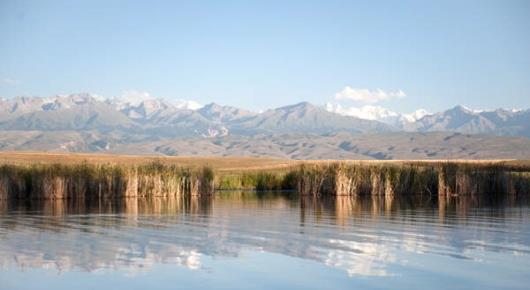Paying for priceless value: securing forests’ role in water quality

Given the many threats to the Earth’s water supply, the role of forests has never been more important.
The role of forest ecosystems in preserving water quality is largely underestimated. To ensure healthy water, strategies for optimizing purification, regulating surface flows and controlling erosion will increasingly need to be a part of forest management and planning.
However, the entities in charge of forest stewardship – private property owners, businesses and governments – often don’t have sufficient resources to manage these tasks.
If all ecosystem services were managed under adequately funded government structures, maintaining ecosystem services could be more straightforward, as the cost of maintaining these natural assets would most likely be shouldered by national operating budgets, with some funds generated from user fees or taxes.
The joint UNECE and FAO study “Forests and Water: Valuation and payments for forest ecosystem services” showcases how schemes that provide payments for ecosystem services can be applied to forests for the mutual benefit of humans and the environment.
In addition, the study contains the most comprehensive database of case studies currently available on water-related payments for forest ecosystem service schemes in the UNECE region. Overall, 229 schemes were identified in 23 UNECE member states. Most of those schemes are located in the European Union and North America.
Payment for ecosystem services can help bear the cost and efforts of maintaining services that are important to humanity but are not typically considered in conventional market transactions. This publication draws on the analysis of many experts and case studies of national, local and private sector experiences to illustrate various existing options for using appropriate stewardship and strong support to benefit forest and water resources.
In Eastern Europe, the Caucasus, Central Asia and the Western Balkans, ownership structures and legislative frameworks are often not in favor of schemes that provide payments for ecosystem services. However, an unconventional case demonstrating this system is found in the Chon-Aksuu watershed in Kyrgyzstan’s Issyk-Kul region. Here, payments have addressed issues of overgrazed pastures and degraded forests, which can lead to erosion and increased levels of suspended sediments in rivers, and, eventually, lower water quality. Benefits have included the reforestation of 14 hectares – including 37 000 seedlings of spruсе and birch trees in mountain areas and poplar and willow trees in the valley – worth roughly USD 9 600.
The Sustainable Development Goals related to water (SDG 6) and land (SDG 15) explicitly acknowledge the connections between forests and water. Payments for ecosystem services are not only highlighted in all relevant United Nations literature since the Millennium Ecosystem Assessment of 2005, but they are also mentioned in the 2030 Agenda for Sustainable Development.
“The sustainable management of forests and water supplies is crucial for the long-term success of all SDGs,” says Ekrem Yazici, deputy chief of the joint UNECE/FAO Forestry and Timber Section. “Payment for ecosystem services schemes are an important tool to recognize the services forests provide.”
23 November 2018, Geneva, Switzerland
